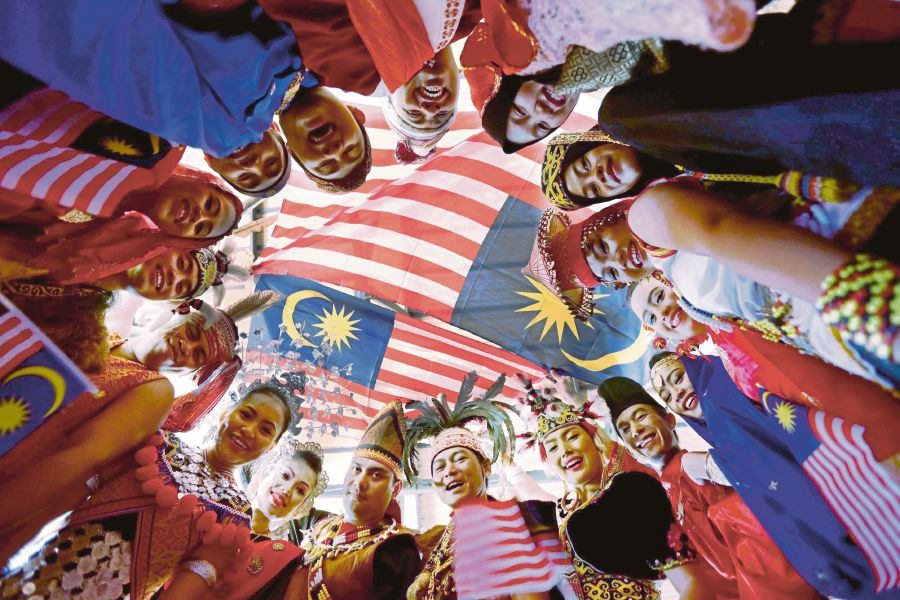“Why do we need unity if we are at peace?” some may ask. Admittedly, symptoms of disintegration are not widespread, but a society that is considered stable does not mean that it is issue-free. It is wise not to assume that divisive issues do not exist, especially in a relatively peaceful and superdiverse society such as ours. Simply put, without unity, there is a greater chance of disunity.
Interestingly, racial unity was one of the main topics debated during the first 2050 National Transformation (TN50) dialogue held recently with Deputy Prime Minister Datuk Seri Dr Ahmad Zahid Hamidi. For a topic such as national unity and integration that has been highly debated since 1969, it is not the least surprising that there would be a repetition in the issues that will be brought to the table.
Many who are concerned with this issue have held talks, hosted roundtables and conferences as a way of attempting to dissect the many causal factors associated with unity. The very same faces have graced these dialogues to discuss the same matters more than they care to admit. There had been many a time when these initiatives were faced with a stumbling block when some topics for debate were deemed “sensitive” by certain quarters.
There also appears to be a lack of individuals who can articulate their thoughts in public forums. Furthermore, the growing distrust in the government that exists in some communities causes a void of connectors between the people and the government. This under-representation precipitates greater frustrations and may ultimately push some groups to protest on the streets.
After decades of discussions on a topic as tired as unity, how do we explain the social regress that we are witnessing today? Have those countless dialogues come to naught?
Before we even begin tackling (yet again) one of the nation’s biggest challenges, it is crucial that we go back to the basics and ask ourselves — what is this unity that we constantly speak of? Is it just an artificially concocted common goal to serve one group’s political interests?
In a “multi-everything” country such as Malaysia, with the aid of technology and fast information sharing, it is only expected that we will have multiple opinions on everything under the sun. We are aware of our differences, yet we fail to acknowledge that unity carries different meanings to different people. Time and time again, we fall prey to our own presumptions that everyone craves for the same unity we subscribe to.
Without delusions of conforming to uniformity, we must accept the fact that we are what we are, and that we must always remain as a functional society despite our differences and political beliefs.
How do we execute such a mammoth task in ascertaining what everyone wants? In the current political climate, it is a given that many would view TN50 with a hint of scepticism.
Regardless, we should welcome any dialogues — even by NGOs and local communities — with our arms wide open because a platform for open and healthy dialogue is much needed. We are a multipolar society and all groups require space to speak and to be heard.
For words to turn into actions, there needs to be a conscious effort from all levels of society working towards creating a conducive environment for stronger and healthier social cohesion.
The success of the well-intended TN50 would greatly depend on how “open” and “inclusive” the national conversations would be, and how lawmakers respond to the input. The biggest obstacle is not highlighting the problems that we face, but to address the root cause of the problems and “collectively” find long-lasting solutions for them.
Be it a cautionary step or plain paranoia, this is the very reason why we speak on this matter year after year, and it is imperative that we continue to do so with hopes that the rhetoric of unity — albeit it being an overplayed utopian concept — will one day become a reality.
This article first appeared in The New Straits Times on 28 February 2017.





